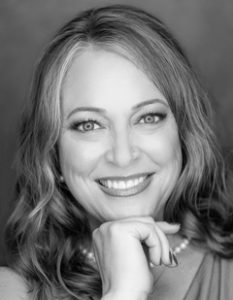Cristal Clark has some words of comfort for all the extroverts who are struggling with social limits that the coronavirus has forced upon us: Your communities are still there. Your friends are, most likely, feeling the same way you are and experiencing similar emotions.
 Clark, a licensed professional counselor and longtime behavioral health administrator, says each person should be aware of their own well-being and personal needs, are those needs being met or not being met, and seeking opportunities to connect with others.
Clark, a licensed professional counselor and longtime behavioral health administrator, says each person should be aware of their own well-being and personal needs, are those needs being met or not being met, and seeking opportunities to connect with others.
Her starter checklist:
- Are you sleeping?
- Are you eating? Are you snacking all day at your desk?
- What kind of exercise are you getting each day? A 15-minute walk releases endorphins that naturally improve mood.
- What are you drinking? More soda? More alcohol Water? It is recommended a person drink half their body weight in ounces of water every day. (150lbs/2 = 75lbs, so 75 ounces of H2O a day)
Clark founded Fort Worth-based MC Wellness in 2010 and advocates for a holistic approach to overall health and wellness. To achieve well-being, people need to be aware of their physical health, their emotional health, environmental health and other needs, she says.
Clark’s views align with PyxisCare Management’s five-aspect assessment for clients. The proprietary tool considers medical, psychosocial, environmental, legal and financial needs. The PyxisCare team uses those insights that to develop custom solutions for families, fiduciaries and organizations that can benefit from care coordination and health plan management services.
Clark says our community connections are important, too, whether for school-age children who have been out of school-based settings for months or older clients living in senior housing.
“We are designed for companionship. Innately, when we were created there was instilled in us a desire for connection,” she says. “We all have a purpose, and that purpose is fulfilled through our connection with others.”
Clark invokes Gary Chapman’s 1992 bestseller “The 5 Love Languages” to explain human emotional needs through our various ways of communicating – words of affirmation, quality time, receiving gifts, acts of service and physical touch. COVID-19 has disrupted most of our regular human interactions, and some by a lot.
We should challenge ourselves to make dates with friends to walk in a park, enjoy an outdoor picnic or meet up on the patio of our favorite restaurant – all while observing public health and social distancing precautions, she says.
While social isolation can be difficult for kids and teens, it can be debilitating for a person who struggles with cognitive distortions, such as chronic negative thoughts and self-criticism, she added. Optimal health is achieved when the body, mind and spirit each are strong, Clark says
“If your body is broken, your mind and spirit have to overcompensate,” she says. “If you are super sad and you just cannot don’t get out of bed, the less you move, the less you move. Depression often increases sedentary (behavior which, over time, causes weakening in muscles. Weak muscles aren’t as effective in supporting skeletal mass as our bodies were designed. Somatic presentation of depression exacerbates the negative self-talk, and your mind then spirals. One affects the other.”
The antidote: Positive thoughts can have the opposite effect and contribute to overall health.
“I encourage people to reach out to others to help you figure out why you are engaging in unhealthy behaviors,’’ Clark says. “Once you figure out the why, usually you can figure out how to change the unhealthy behaviors.”
How do I know if I need professional help?
- If you are thinking about needing help, reach out to a provider and talk with them. It’s that simple.
- If you are having repetitive, negative thoughts about yourself, go talk to someone.
Best advice for employees who are managing chronic stress:
- Contact your employer’s Employee Assistance Program. Many programs provide the employee and/or family member(s), three to five free sessions with a licensed counselor.
- Take comfort in knowing that most EAP counselors see clients at sites other than the employer’s office.
- Use vacation leave. Employees who take time off miss fewer work days and are more effective because they are taking care of themselves and recharging via a healthy work/life balance.
